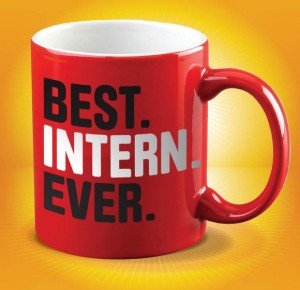Speaking to an employer in a formal setting like an interview can certainly get our nerves going. But what about those less formal interactions or opportunities for “small talk?” Engaging with supervisors by the water cooler or reaching out to a colleague to learn about what they do in their role can feel equally daunting to many. However, small talk is an important aspect of networking and a valuable skill to develop. Here are two simple ways you can practice your small talk and make a big impression in the future. No suit required. The more confident you feel about what you have to say, the easier the process will become.
Leave yourself a voicemail.
- This practice can be helpful as you prepare for a variety of professional interactions. For one, it’s a great way to run through your elevator pitch. We’ve all practiced in the mirror (right?), but listening to yourself on your voicemail can make a big impact. Jot down a few bullet points beforehand to guide you. What did you do well? Did you leave any main points out? Where do you get stuck? How long was the message? How many times did you say “um” or “like”…?
- If you are planning to return a prospective employer’s phone call or hope to reach out to someone for an informational interview, call yourself first and leave a voicemail. Running through this process a few times will enable you to practice being concise and professional. Try jotting down a few speaking points if that is helpful. One word of warning here – just be sure you don’t sound too rehearsed!
Take a friend out for coffee.
- Extend an invitation to a friend or classmate with similar career interests. “Hi Joe, are you free this week? I’d love to meet for a coffee and hear about how your internship is going.” Observing others as they speak about their own experiences can be helpful. Take mental notes on how he or she describes experiences or gives examples of highlights. What did you learn? If you run into him or her on campus, incorporate something from your meet-up into the conversation. “Hi Joe, thanks again for meeting up the other day. How’s that project going? I know you said you had a tight deadline! I’d love to hear how it turns out.” Think about how you can apply what you learn from these interactions to professional networking.
- Perhaps your first language is not English and you are concerned about speaking and connecting professionally with others in your field of interest. Meet-up with a friend for coffee or a meal and make a pact to only speak English for the duration of your time together. Plan to read an article beforehand to discuss or agree on a career topic of interest to both of you. The first person to speak English pays for the coffee!



